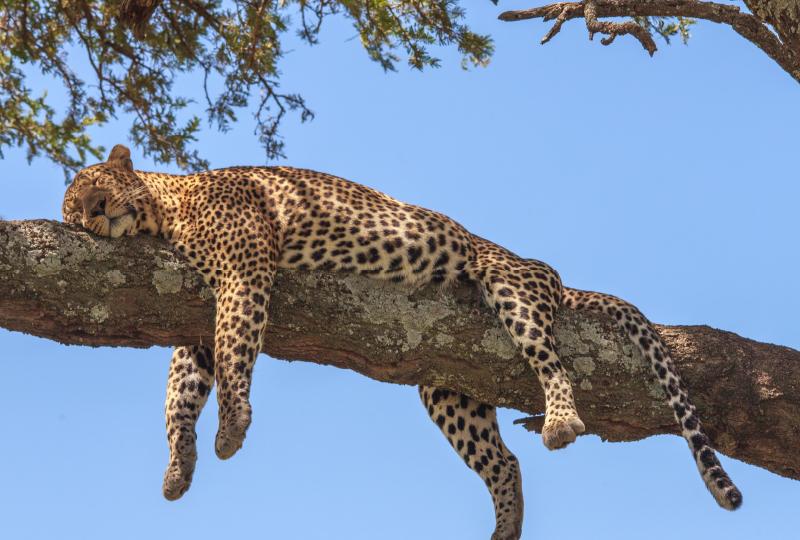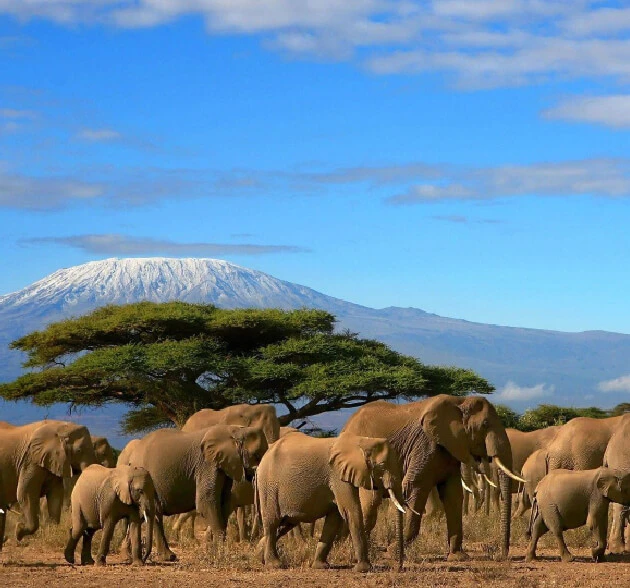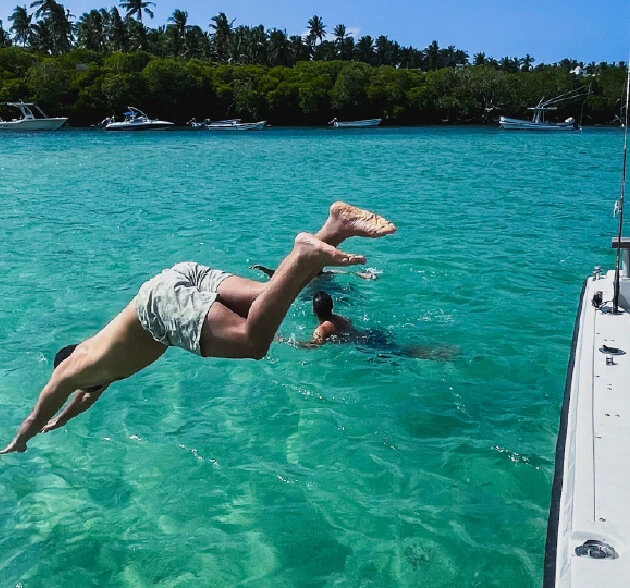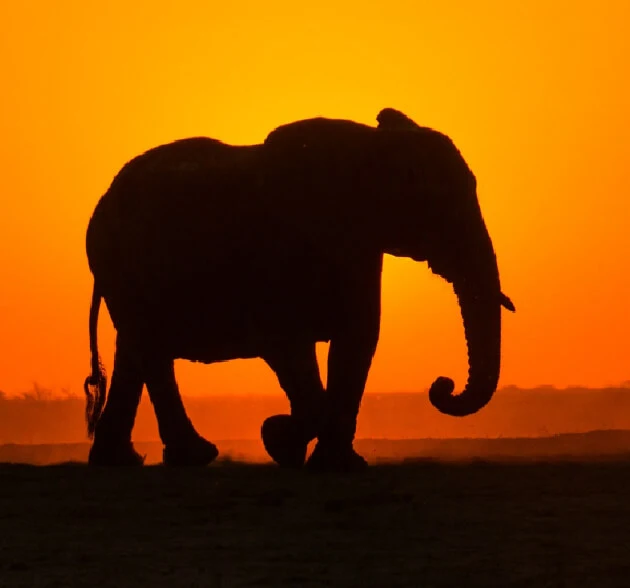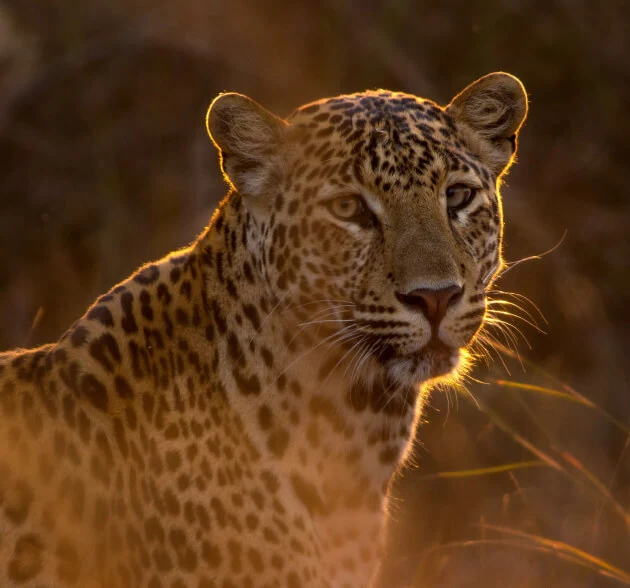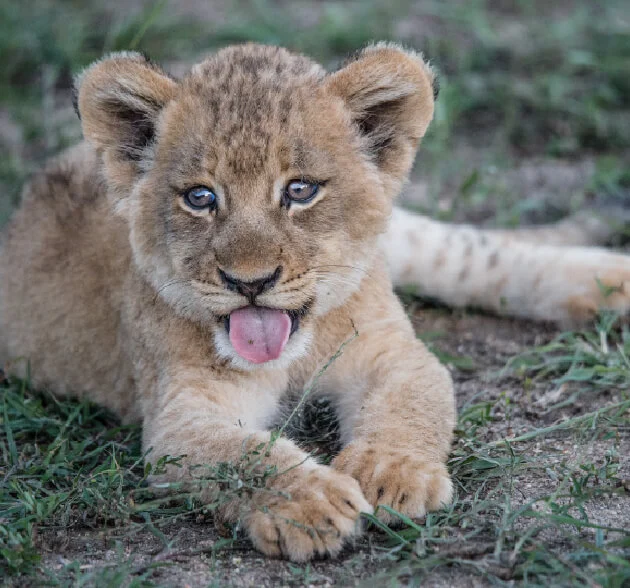Where To Go On Your First Safari In Africa
For many, a safari represents the ideal escape and lifelong travel dream. With plenty of African safari packages, you only want to choose the best of the best, and now comes the tricky part: choosing where to go on your first safari.
If this sounds like the kind of African bucket-list trip that you’ve been longing for, you may start asking yourself; which countries offer the best safaris for first-time travelers? Or which countries are best for wildlife game viewing?
We have put together a beginner’s guide to planning your first safari to Africa and help you narrow down your ultimate safari – without feeling overwhelmed.
African safaris are highly expert trips designed for clients with very different expectations, safari tastes, and demands. Planning is everything and we want to ensure that we set you on the right path of your much awaited African trip. “Discover more using our handy information and insights for planning that first safari…including first-time safari tips”
A Beginner's Guide To Planning Your First African Safari
Where should I go on safari? Africa is a massive continent with plentiful safari experiences that differ greatly by country, region and season. Here’s our guide to the best safari destinations in Africa for first-timers;
Where you choose depends very much on your interests and preferences; whether you are interested in wildlife game viewing, culture, historical heritage sites, luxury tours in Africa, African beach safaris, Mount Kenya climbing family-friendly experiences, horse riding, cycling, conservation…the list goes on.
The most interesting safaris should offer a mixed programme of private guided experiences, ask yourself what you’d like to see (and do) while on safari, and how you want to feel?
Is it a classic East African Big Five safari you’re seeking? (‘Big five’ refers to lion, leopard, rhinoceros, elephant and buffalo) Or are you dreaming of those classic African safari lodges or just a luxury African safari with as much as wildlife? Will the tour be a combined African safari and beach-time, or do you crave the drama of the Great Migration Safari that passes through the Masai Mara and Serengeti ecosystems every July and August to September? Or is the answer flight safaris?
But, with a world of countries, top national parks, reserves and conservancies to choose from, where should you choose to travel on your first safari to Africa? Below is a list of recommended safari destinations for you.
“For a first safari, choose a region that will offer a strong chance of seeing the Big Five (lion, leopard, rhinos, elephant and buffalo) and an area with plenty of parks.
To help you in your decision, popular safari heavyweights like Kenya’s Masai Mara National Reserve, Tanzania’s Serengeti National Park, and South Africa’s Kruger National Park are renowned for world-class safaris and probably your best bets.
- Kenya – Africa In A Nutshell
Our guide to planning a safari in Kenya.
Why to go to Kenya for your first safari?
Being the birthplace of African safaris, Kenya is one of Africa’s most popular choices for safari-goers and it isn’t hard to see why.
Kenya’s wildlife offering is magical, with the Great Migration in particular at the top of many travelers bucket lists – huge concentrations of game viewing, excellent safari parks, some of the best wildlife conservancies and timeless safari stories in Africa…
Frequently, Kenya is viewed as a better choice for family safaris, those longing for luxury African tours, group safaris, and those on a tight timeline. Kenya is on top of the list of Africa’s recommended top destination for first-time safari goers.
It’s very safe, easy to travel and has the longest safari history and well-developed infrastructure. Kenya is a success story for safaris – before you even leave Nairobi (the capital city) you have the opportunity to see wildlife up close and personal at the incredible Nairobi National Park and the Giraffe Centre located inside the capital city.
Kenya also has a history of many famous Africa safari movies, the likes of Lion King, and if you’re dreaming of “Out of Africa” safaris, this is the right choice for you. On top you can easily combine a safari with a Kenyan beach vacation as the coastline of Kenya offers some of the most unspoiled beaches.
Top attractions & places to visit in Kenya for safari are as follows:
- Iconic Masai Mara National Reserve
- Amboseli National Park
- Lake Nakuru National Park
- Samburu National Reserve
- Ol Pejeta Conservancy
- Tsavo East National Park
- Tsavo West National Park
- Diani Beach
The Masai Mara National Reserve is, without question, one of the finest places in Africa for a safari. If you want to avoid the crowds we recommend to pick the Mara Triangle, Tsavo and the North of Kenya like Laikipia and Lewa.
There’s the bird-watchers Great Rift Valley lakes (Lake Nakuru & Lake Naivasha) and the arid Samburu plains where the Special Five live: the Somali ostrich, Grevy’s zebra, reticulated giraffe, Beisa oryx and gerenuk. Our Taste of Kenya itinerary allows you to sample Kenya’s top destinations which works really well for a safari and beach holiday with the ability to add a beach break on the white sands of Diani and Watamu beaches.
- Tanzania
Our guide to planning a safari in Tanzania
Why to go to Tanzania for your first safari?
Tanzania is another superb destination for a first trip to Africa. Famous for its immense game concentrations, endless open skies, plus excellent safari-and-beach breaks, it is home to a number of Africa’s finest parks.
You will never see as much wildlife as you do in the Serengeti ecosystem! Tanzania and Kenya share similarities, both having abundant wildlife parks and excellent safari combinations.
A Tanzanian classic safari circuit covers the following areas – Arusha, Tarangire, Ngorongoro and the Serengeti, for epic wildlife-watching. You should consider adding a few days and combining a safari with a slice of beach relaxation at the island of Zanzibar. This collection of Spice Islands is a jewel in the Indian Ocean that boasts secluded honeymoon-worthy resorts, superb diving and tours of historic Stone Town. Tanzania’s safari-and-beach vacations are easily combined, authentic, and affordable, the perfect end to your first ever safari.
Top attractions & places to visit in Tanzania are as follows:
- The legendary Serengeti National Park.
- The Ngorongoro Crater is a UNESCO World Heritage Site that was formed 3 million years ago.
- Lake Manyara National Park.
- Mt Kilimanjaro.
- Zanzibar Island
- South Africa
Our guide to planning a safari in South Africa
Why to go to South Africa for your first safari?
Known for its diversity of experiences, South Africa is a stunning destination for a great all-round vacation, yet another rewarding safari destination for first-timers – being a suitable safari destination weather-wise, it also remains a gateway to a host safari experiences to suit safari-seeking families.
From Kruger National Park to the picturesque private reserves like Sabi Sands, taking a trip to South Africa offers a one of a kind safari experience that accommodates all levels of travelers.
In addition to Big 5 safaris, it’s also a fabulous place for any style of holiday, especially in summer, and can be combined with a beach break or take it to the South Africa Winelands, shark diving, whale watching, Zulu battlefields, rock art, fishing, the famous Garden Route… These collection of experiences puts South Africa firmly on the map for a first-timer’s trip to Africa.
If you’re short on time, South Africa is the ideal place to see exactly what you dreamed of seeing on a short safari, the country also boasts malaria-free safari areas bragging to offer the best malaria-free safaris in Africa.
Negative points – travelers say that the country does not offer a truly authentic safari and that feeling of ‘real’ Africa found elsewhere.
Top attractions & places to visit in South Africa are:
- Cape Town and surrounds, including the Winelands and the Garden Route.
- The private game reserves included in the Greater Kruger National Park, in particular, Timbavati, Klaserie and Sabi Sands.
- The Kalahari and private game reserves in the region, notably Tswalu and Madikwe.
- Botswana
Our guide to planning a safari in Botswana
Why to go to Botswana for your first safari?
Botswana is a real standout option, the experience here is much more rugged and real, with the landscape here completely different – with a mix of dense vegetation, open floodplains and waterways that connect the whole ecosystem of the Delta together.
Botswana is probably the most famous for being Africa’s most expensive safari destination offering unbeatable level of exclusivity and privacy, high-quality sightings, and you’ll be able to stay in some of the most amazing lodges in Africa – these top of the class camps are in attractive areas, the Chobe River, the Okavango Delta and the salt pans of Makgadikgadi.
Botswana being one of Africa’s premier wildlife-watching destinations, these private reserves offer safari activities such as game drives, boating, walking safaris, night drives, mokoro (traditional canoe) rides, bush walks, fishing, fantastic birding and even more.
If you are a high-end luxury traveler longing for an extremely high quality safari area, regardless of cost, then the Okavango Delta in Botswana is a real standout option for you.
Top attractions & places to visit in Botswana include:
- The Okavango Delta, Moremi Game Reserve and Chobe National Park.
- The Central Kalahari Game Reserve and Makgadikgadi Salt Pans.
- The Linyanti and Chobe Rivers.
- Rwanda & Uganda – Best For Gorilla Trekking Tours
Our guide to planning a safari in Rwanda and Uganda
Why to go to Rwanda for your first safari?
Rwanda is unquestionably one of the best places on the planet to experience wild gorilla trekking experiences.
Uganda and Rwanda are the true definition of mountain gorilla safaris! Viewing these Great Apes up-close is a truly impressive experience. For first time visitors you can check off your list of Big 5 wildlife during a safari in Akagera National Park.
And when you’re ready for more of an adventure you can then visit Nyungwe National Park to go chimpanzee trekking and Volcanoes National Park to trek with gorillas, both experiences delivering a lifetime experience.
We often design itineraries featuring the Uganda mountain gorillas, most often as an add-on to a Kenya or Tanzania safaris meaning you can combine Gorilla trekking in Uganda or Gorilla trekking in Rwanda with a big 5 safari destination like Kenya.
Rwanda & Uganda are perfectly positioned if you wish to combine a visit with Kenya and Tanzania it forms one of the best East African safari circuit.
Top attractions & places to visit in Uganda are as follows:
- Gorilla trekking in the Bwindi Impenetrable National Park
- The Mountains of the Moon is Uganda’s legendary source of the River Nile
- Lake Victoria and the exquisite sun drenched Ssese Islands
- The Murchison Falls National Park is Uganda’s largest national park and home to the spectacular 40 metre high Murchison waterfall.
Top attractions & places to visit in Rwanda are as follows:
- Volcanoes National Park
- Akagera National Park, the only place in Rwanda where you can see the Big 5
- Nyungwe Forest National Park is one of Africa’s oldest rainforests and home to dazzling selection of wildlife, including 13 different species of primate.
- Namibia – Safaris, Sand Dunes & Incredible Landscapes
Our guide to planning a safari in Namibia
Why to go to Namibia for your first safari?
Dramatic desert scenery, desert-adapted wildlife and jaw-dropping scenery – Namibia needs no introduction.
Namibia has a lot to offer the nomadic traveler, and it’s more than just safari experiences – you can climb sand dunes and get a bird’s-eye view over the desert beneath you, visit flamingo colonies or fly a hot air balloon over the world famous Sossusvlei Desert which is by far Namibia’s top attractions. Namibia has become a top spot for photography enthusiasts.
It’s very safe & easy to travel, with many tourists independently driving around in cars, but there are private reserves on its borders, where you can stay away from the crowds and enjoy a more exclusive experience. Namibia prides itself as one of the affordable safari destinations for your first introduction tour to Africa.
Positive points: The desert and the country’s scenery. Desert rhino and desert elephant!
Negative points: Debatable lack of authenticity, lack of quality safari parks. This is not a safari destination.
Top attractions & places to visit in Namibia are as follows:
- The Namib Desert and the NamibRand Nature Reserve.
- Sossusvlei Desert is home to the highest free-standing dunes in the world as well as Namibia’s only natural UNESCO World Heritage Site.
- The Fish River Canyon, second biggest canyon in the world.
- Damaraland and Twyfelfontein.
- Etosha National Park is another great destination in Namibia for wildlife lovers.
Here’s our guide on choosing Africa’s best safari accommodation.
Choosing the best accommodations for your first safari depends on the length of your stay and the level of comfort that you’re after. There are plenty of safari lodges and camps to choose from, with options ranging from Economy lodges, Midrange lodges and Luxury lodge accommodations, take note that standard of facilities, style and location are all different.
Before we talk about the details of how to choose a safari accommodation, let’s talk about the difference between a tented safari camp and a safari lodge.
Difference Between Tented Safari Camp Vs Safari Lodge
A safari lodge usually have complete facilities and will offer spacious suites, an on-suite pool and a restaurant-style dining area, Wi-Fi throughout the property, and various other amenities while on the other side, a safari camp is typically tented accommodation, often running on solar power, with fewer on-site amenities, but provides a more traditional exposure, best for a true bush safari experience.
We are not saying that a safari lodge is much better than a safari camp – because there are some top luxury tented safari camps!
Here’s what to look for before choosing the best safari lodge;
- Is the safari lodge inside national park? You can opt to stay inside stay at accommodations inside of the national parks for a better wildlife game viewing experiences and much more comfort.
- Is the safari lodge outside national parks? Another option would be to stay at accommodations outside of the national parks for lower pricing for budget safaris.
- “Travelers should consider the exclusiveness and remoteness of safari lodge. How many other lodges are located nearby? Do they offer unique wildlife experience?
- Is the safari lodge good for kids? If you are planning an African safari with kids, you want to make sure a safari is both fun and educational for kids, find lodges with kids programs. It’s important to find the right setup, especially a safari with small children. A good example is a Mini Maasai Adventure program, where Maasai Warriors at the Kids’ Club guide children. Make sure the lodge accepts children if you have kids.
- What kind of amenities does the lodge offer? Consider the level of comfort & lodge amenities – not all camps and lodges offer the same level of luxury or the same facilities and amenities, some offer no amenities and others offer very luxurious options.
- Age limits of safari lodges and camps – this is a standard set by the camps to ensure the safety of all guests and capabilities of the team handling the children. Many lodges and camps have children age limit restrictions and activities for young children.
- Choose sustainable safari lodges & camps; is the safari lodge reliable and reputable?
- Safari lodge food & culture experience; is the food being served as buffet-style or a la carte style?
- What is the cost of the safari lodge? Your safari budget will always determine your lodge, and understanding the cost of a safari lodge is important and it’s important especially for first time visitors. The price of a safari lodge can start from $300USD per person per night up to $2000 USD per person per night, it’s better to ask an expert who can recommend places to stay based on experience, organise the logistics, and ensure safe travel from the moment you land to the moment you leave.
List of the best Africa safari lodges;
Where to stay on safari in Kenya
Kenya has hundreds of excellent lodges and tented camps, standards of service from local staff are generally high.
The best luxury safari accommodations in Kenya include;
- Elsa’s Kopje
- Rhino River Camp
- Loldia House
- Finch Hattons Luxury Tented Camp
- Tortilis Camp
- Sasaab Camp
- Saruni Samburu
- Hemingways Nairobi
- Kinondo Kwetu
- Porini Rhino Camp
- Loisaba Tented Camp
- The Sanctuary at Ol Lentille
- Naboisho Camp
- Angama Mara
- Cottar’s 1920s Safari Camp
- Lewa Wilderness Lodge and many more.
Where to stay on safari in Tanzania
The best Tanzania safari lodges & camps include;
- Gibb’s Farm – Honeymoon Lodges
- Jabali Ridge
- Mwiba Lodge
- Klein’s Camp
- Mnemba Island Lodge – Family Lodges
- Baraza Resort & Spa
- Chem Chem Lodge
- Singita Serengeti House – Lodges for Small Groups
- Mila Tented Camp
- Roho Ya Selous
- Sanctuary Swala Camp
- Rubondo Island Camp
Where to stay on safari in South Africa
The affordable safari lodges & hotels in South Africa include;
- Arathusa Safari Lodge
- Simbavati River Lodge
- Motswari Game Lodge
- Jaci’s Tree Lodge
- Madikwe Safari Lodge
- The Place of the Lost
- Sun City
- Kariega Settler’s Drift
- Bayethe Tented Lodge
- Phinda Mountain Lodge
- Phinda Forest Lodge, and
- The Oyster Box
Where to stay on safari in Botswana
The best Botswana safari lodges & camps include;
- Baine’s Camp
- Camp Okavango
- North Island Okavango
- Linyanti Ebony
- Sanctuary Chobe Chilwero
- Jao Camp, 7.Jack’s Camp
- Chobe Game Lodge
- Duke’s Camp East
- Sanctuary Chief’s Camp – Solo Traveller Lodges
- Meno a Kwena
- Vumbura Plains and
- Kings Pool Camp
Where to stay on safari in Rwanda
The best places to stay on a Rwanda safari include;
- Magashi Camp
- Ruzizi Tented Lodge
- One & Only Nyungwe House
- Lake Kivu Serena Hotel
- Kigali Serena Hotel
- Heaven Boutique Hotel
- The Retreat
- Volcanoes Virunga Lodge
- Sabyinyo Silverback Lodge
- Singita Kwitonda Lodge
- Singita Kataza House
- One & Only Gorilla’s Nest and
- Bisate Lodge
Where to stay on safari in Uganda
The best Uganda luxury safari camps & lodges include;
- Sanctuary Gorilla Forest Camp, Bwindi NP
- Mihingo Lodge, Lake Mburo NP
- Mweya Safari Lodge, Queen Elizabeth NP
- Primate Lodge Kibale, Kibale NP
- Paraa Safari Lodge, Murchison Falls NP
- Sipi River Lodge, Mt Elgon NP
- Apoka Safari Lodge, Kidepo NP
- Kyaninga Lodge, Kibale NP
- Mount Gahinga Lodge, Mgahinga NP
- Clouds Mountain Gorilla Lodge, Bwindi NP
Where to stay on safari in Namibia
The best Namibia luxury safari lodges & camps include;
- Little Kulala, Sossusvlei
- Hoanib Skeleton Coast Camp
- Serra Cafema, Kunene River
- Okonjima Plains Camp, Okonjima NR
- Palmwag Lodge, Damaraland
- Okaukuejo Resort, Etosha NP
- Mushara Bush Camp, Etosha NP
- Camp Kipwe, Twyfelfontein
- Dolomite Resort, Etosha NP
- Damara Mopane Lodge, Damaraland
Safari accommodation types & comfort levels differ from the level of service to the amenities offered, and the type of African safari accommodation that you will choose is also determined by your budget; how much are you willing to spend?
Here’s our guide to the different types of safari accommodation.
- Luxury safari Lodges and Tented Camps
In almost all instances, luxury lodges & Tented camps are located at strategic viewpoint locations within the national parks and game reserves. They are unique in architecture and design. They also provide easy access to the game viewing areas. The facilities and comfort levels are of higher standard. Rooms/, tents are private and en -suite. There shall most likely be a swimming pool in most of the luxury facilities.
- Midrange safari Lodges and Tented Camps
Midrange tented lodges and camps may be located inside or just at the boundaries of the national parks and game reserves. Others may be slightly further. In all instances, they are less than 30 minutes from the park entry gate. The facilities’ comfort levels are sufficiently adequate although slightly lower than for luxury accommodation level. The rooms and tents in this comfort level category are also private and en suite. Most comfort lodges / tented camps shall have a swimming pool.
- Economy safari Lodges and Tented Camps
Almost all economy lodges and tented camps (except a few) are located outside of the National park boundaries and just next to the park. They are easy, comfortable and sufficiently adequate for relaxation, overnight and meals although relatively basic compared to the luxury and comfort options. Rooms and tents are private and have en -suite bathroom facilities. Most of the economy options may also have a swimming pool.
Below is a list of best destinations recommended to first-time safari goers.
- Masai Mara Game Reserve, Kenya – Great Migration, Luxury, Big 5
- The Serengeti, Tanzania – for the Big 5 & migration
- Laikipia, Kenya – for an insight into conservation
- Akagera National Park, Rwanda – meet mountain gorillas in Rwanda
- Lower Zambezi National Park, Zambia – for walking safaris
- South Luangwa National Park, Zambia – for leopard sightings
- Chobe National Park, Botswana – for river-based safaris
- Hwange National Park, Zimbabwe – for elephant enthusiasts
- Eastern Cape, South Africa – for the best of both worlds
- Sabi Sands, South Africa – for the ‘Big 5’
On your first trip to Africa, you might be asking yourself what happens on a safari day? Well, a typical day on safari in Africa usually involves the following;
On a normal safari days in Africa, expect a predictable schedule.
Depending on what time the sun rises, the camp staff will wake you up in time for the morning game drive, expect the wake up call to be followed with a cup of coffee, before heading into the bush with a guide in an open-rooftop 4 X 4 game vehicle.
Breakfast or lunch can be served out in the bush, or by mid-morning when you return to the lodge for full breakfast or brunch, depending on how late it is and whether you had a bush breakfast.
Before afternoon hours, you can use this time for relaxation, read something, have a nap, enjoy swimming, walking safari excursions or enjoy massages at the SPA before heading out again for your second game drive.
In the late afternoon hours, we head back again to the bush and this time it’s our second afternoon game drive. During these hours, we extend our chances of spotting some wildlife game actions before calling it a day in the evening hours.
During the evening hours before we head back to our camp for dinner, there’s usually a bush sundowner.
A sundowner is a well-known tradition during your safari and it means a nice refreshing champagne drink during sunset. This is the time many people take to reflect on their safari day. It usually happens in the evening hours before you return to the camp/ lodge around 5.00-6.00 PM.
Keep in mind, sundowners will only happen if you are doing your safari on a private reserve/ private conservancy (it cannot happen in national parks).
We will end our safari day with a sumptuous dinner of which – depending on your accommodation, dinner may be a buffet, plated or á la carte.
If the night is clear, it may be served in an open-air area around a warm campfire as you watch the stars. Afterwards, its bedtime.
Popular African Bucket-List Safaris
For a first-timer deciding on where to go for a holiday in Africa, prepare for something special on your first trip. We have identified the best of Africa’s most iconic journeys that should be added to your bucket list tours in Africa, and whatever you have in mind, we can make it a reality.

Where You Should Go On Safari In Africa
Top 10 African Bucket List Safari Destinations
FAQ’s - Beginner’s Guide To Planning Your First Safari In Africa
Explore our frequently asked questions, giving you a clue on everything you need to know before booking your first African safari.
The best time to visit an African country depends on your plans. Some people want to explore the wilderness, while others want to go on cultural and historical adventures. Then there are adrenaline junkies who want to scale Africa’s tallest mountains or white water raft on thrilling rivers
- Botswana – From May to October and November to April
- Kenya – From January to February, June to October, October to February, June and July.
- Madagascar – April to October and September to December
- Namibia – From July to October and November to April
- South Africa – May to September and September to March
- Tanzania- From July to October, October-December and March-May
- Uganda – December to February, June to August and May to September
- Zambia -June to November and October to April
- Zimbabwe -July and October and October to March
Just like any other country/ countries, Africa is a safe place to visit on a wildlife safari arranged by a reliable safari agency chosen by you.
Here are some guidelines that will keep you safe in Africa:
- Avoid travelling alone at night
- Avoid visiting isolated roads and places
- Keep your valuables locked in a hotel safe
- On game drives, always follow your guide’s advice
Safari visitors need to pack light, there isn’t any need for fancy clothes in the bush, and laundry is often available so things can be washed regularly. You can pack 2-3 sets of neutral coloured clothes and some layers for the cool night and early morning temperatures. Also, pack some gloves, scarf, and hat for the colder months. Don’t pack camouflage clothing. Refer to our detailed guide of African safari essentials for further information on what to pack.
During an African safari, you can carry items such as:
- Sunscreen, sunglasses, safari hat, lip balm
- Camera, lenses, spare batteries, binoculars
- Waste bags to avoid littering
- Insect repellent, hand sanitiser, tissues
- Notebook to write down what you see
Foreign currencies such as US Dollars, Pound Sterling and Euros are accepted at accommodations, hotels, and shops throughout your safari in Africa. They also accept credit cards, but it isn’t accepted everywhere. If you want to convert your currency to local currency, use banks, Forex at the airport or ATMs.
Make sure you use Google exchange rate to convert the currency during your safari payments.
- Botswana Currency – Botswana pula
- Kenya Currency – Kenyan shilling
- Madagascar Currency – Malagasy ariary
- Namibia Currency – Namibian dollar
- South Africa Currency – South African rand
- Tanzania Currency -Tanzanian shilling
- Uganda Currency – Ugandan shilling
- Zambia Currency – Zambian kwacha
- Zimbabwe Currency – Zimbabwe dollar
Since African safari packages often include vehicle transfers, accommodations and safari activities. Some of them also include domestic flights. On an African safari, you will need some cash at hand to tip the driver guide.
You may also need some extra cash on your safari to pay for the optional activities, the price for optional activities is separate. Additionally, you might also want to purchase souvenirs, snacks, or drinks at the local shops. Some of these shops may not accept credit cards, so it’s advisable to have cash for such additional expenses.
What does a safari cost is a question that comes to your mind first when you think about travelling to Africa.
An African safari will cost you anywhere between $300 (USD) and $1,500 (USD) per person. A budget safari averages $300 per person, mid-range $550 and luxury $850. The extreme top-end safaris can easily go up to $2,000 per person, or more! There is actually a safari to suit every budget.
A valid passport is required for all international travel. Passports must be valid for at least 6 months after returning from your trip. In certain cases foreign passport holders require entry, re-entry or departure permits and/or visas to enter a country. You should also have two blank pages in your passport for every country you visit.
Please contact the relevant authorities and embassies in good time to check and arrange the necessary permits and visas at least three weeks prior to your departure.
1. KENYA SAFARI VISA:
Visas for Kenya need to be obtained before you travel. You can apply for a Kenyan visa here https://evisa.go.ke/evisa.html – A single-entry e-visa for Kenya allows you to enter, exit and re-enter the country after visiting either Tanzania, Uganda or Rwanda, without having to purchase a multiple-entry visa.
If you plan on visiting Uganda and Kenya, you can apply for an East Africa Visa and use it multiple times. The issuing country should be your first entry port.
2. TANZANIA VISA APPLICATION:
Visas for Tanzania. You can apply online for a visa here: https://eservices.immigration.go.tz/visa/guidelines
3. UGANDA VISA APPLICATION:
Visas for Uganda need to be obtained before you travel. You can do this on their government website: https://visas.immigration.go.ug/ and if you’re visiting Kenya too, opt for the East Africa Visa.
4. SOUTH AFRICA VISA APPLICATION:
Visas for South Africa http://www.dha.gov.za/index.php/immigration-services/exempt-countries
5. NAMIBIA VISA APPLICATION:
Visas for Namibia https://visitnamibia.com.na/visa-information/
6. BOTSWANA VISA APPLICATION:
Visas for Botswana https://www.handyvisa.com/visa-policy/botswana/
7. ZAMBIA VISA APPLICATION:
Visas for Zambia https://www.zambiaimmigration.gov.zm/for-visitors/
The best countries for safari in Africa include;
- Kenya
- Tanzania
- South Africa
- Botswana
- Rwanda & Uganda
- Namibia
Usually while on safari, the park entrances, picnic spots and lodges usually have bathrooms but on game drives you’ll be ‘going’ to pee in the bush (number 1 and 2), so carry tissues and a small bag. Hand sanitiser is a good idea, too. There are normally stops on safari drives. If you have an emergency, then inform your guide for safari questions and answers.
No, lions (and other wild animals) do not attack safari vehicles. In fact, animals rarely even approach the trucks, unless they want shade or are in the process of stalking prey. If an animal does approach, then your driver will let you know what to do. Is going on safari dangerous? Again, no, it is quite safe.
Drinking water on safari depends on where you’re going. Some places in Africa have treated water that is safe to drink from a tap. However, if you’re not a local with immunity to the local bacteria strains, then you could experience diarrhoea. The good news is that most safari lodges and camps stock bottled mineral water.
What happens is that the Safari lodges and camps generally run power from generators and solar installations. Lodges in towns, cities and developed rural areas operate on mains or utility electricity with the expectation of offering 24-hour electricity. But then, the power is not very reliable in many areas, so they still use generators.
Do I Need To Worry About Malaria On Safari? A good question, and the answer is that most of the national parks and reserves are malaria-free.
The best and preventive action you can take to prevent malaria while on safari;
Take malaria prophylactics for both adults and children that can be prescribed by your home doctor or travel clinic, use insect repellants and cover your arms and legs in the evening.
Africa’s famous Big Five consist of the lion, buffalo, elephant, rhino and leopard.
Not all safari camps and lodges in Africa allow children, particularly children under the age of six, but many others will allow them. Same goes for the safari lodges and safari camps in game parks and reserves in Africa.
Some of them not only permit little ones but cater specifically to children and families, offering lots of fun activities for kids on safari.
1. What is the best age for children to go on an African Safari tour?
There is no ‘perfect’ age, and it will mostly depend on the individual child. However, we recommend that children be at least six years old to fully appreciate and participate in an African Safari tour.
2. Is it safe for children to go on an African Safari tour?
Yes, it is generally safe for children to go on an African Safari tour, as long as you take the necessary precautions and follow the guidelines set by your Safari guides.
3. Will the Safari be too challenging for my children?
Most African Safari tours are designed to accommodate families, and there are many child-friendly activities and setups available, which are specifically tailored to children’s interests, needs, and abilities.
4. Are there any vaccinations or medications required for children before going on an African Safari tour?
Yes, your family doctor will recommend that certain vaccinations be up-to-date before going to Africa. Additionally, parents should ensure that their children are taking anti-malaria medication, especially if the Safari is taking place during the rainy season African Safari Questions.
In conclusion, taking your children on an African Safari tour could be an incredibly enriching it is worth it doing some research and considering some of these answers to African Safari Questions.
Always Consider A Flexible Approach To Planning.
At times we tend to think that we know what we want to do or where to go but in real sense our ideas may not work in practice. Perhaps due to a number of things, e.g the date of travel, activities offered among others.
So what are the types of available activities while on safari? The top 8 activities while on safari include;
- Game Viewing Drives and Guided Safari Walks
This is how most of you will experience your safari. It will be either from the back of a game drive vehicle or, where available, on a walk with a qualified guide.
- Boat Safaris (Including Houseboats)
Wherever you find water you will find motor boats and boating activities on offer. It offers a whole new perspective and will often allow you to get a lot closer to the wildlife than in a vehicle or on foot.
- Hot Air Balloon Safaris
Some of the very best locations to enjoy a balloon ride are on safari. It’s one of the best activities while on safari. Hot Air Balloon rides over the open grass plains of the Masai Mara or Serengeti, or above the stunning sand dunes of the Namib Desert in Namibia are a one of a kind experience.
- Horseback Riding
If you are a passionate horseback rider, or even able to ride a horse, horseback safaris will be able to get you up close to some of Africa’s big 5 wildlife – an ultimate thrill.
Good locations for horseback safaris in Africa include the Masai Mara in Kenya, Okavango Delta in Botswana, Kwa-Zulu Natal, Kruger and the Cape region in South Africa.
- Helicopter Flights
While on your safari you may transfer between camps by small charter planes (e.g. Okavango Delta) or between game reserves (e.g. Samburu to Masai Mara in Kenya).
These flight safaris offer a wonderful view of these regions from the air, delivering some truly striking photographic opportunities.
If you are able and if the opportunity arises, we recommend you to take a scenic helicopter flight in the area that you are visiting. These helicopter safaris can be arranged in the following countries (available along the Great Rift Valley in Kenya), another option is to arrange a complete helicopter itinerary by prior arrangement throughout the Okavango Delta in Botswana.
- Quad Bikes and Mountain Biking
- Photo Safaris Workshops
If you are a photographer, getting better wildlife photos on safari is something you want to focus on, then a photo workshop is the answer.
The photo workshops usually range from 4 days to 2 weeks (photographic tours) and are accompanied by a professional photographer. These workshops offer practical photographic advice and an opportunity to review and improve your skills, whilst enjoying all the attractions of being on safari.
- Canoeing, Kayaking, Rafting and Mokoros
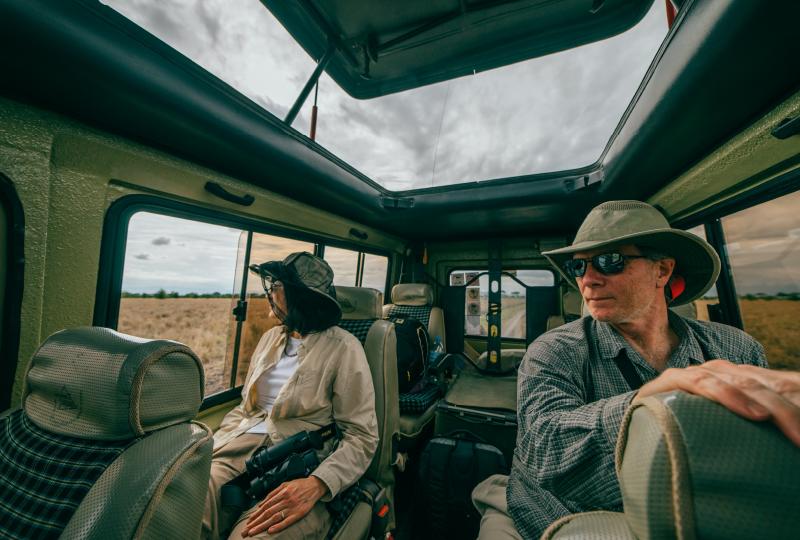
Luxury Masai Mara Explorer Safari
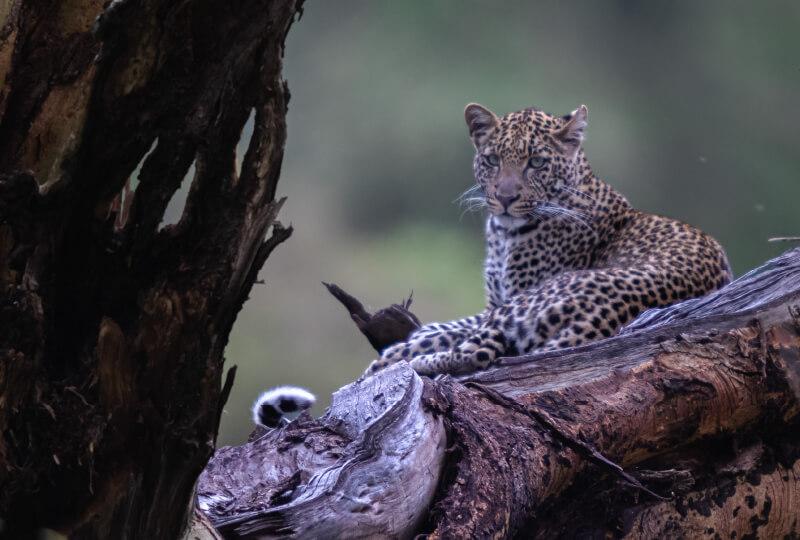
Magnificent Masai Mara & Lake Nakuru
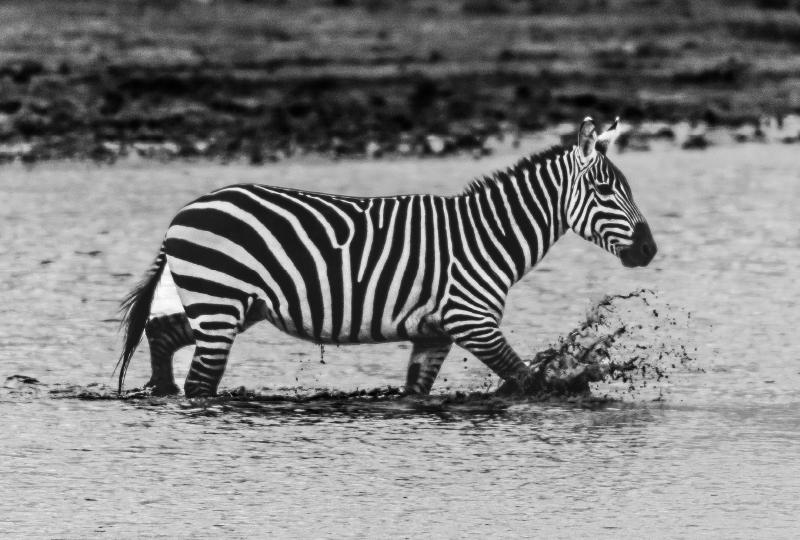
Masai Mara Experience Safari
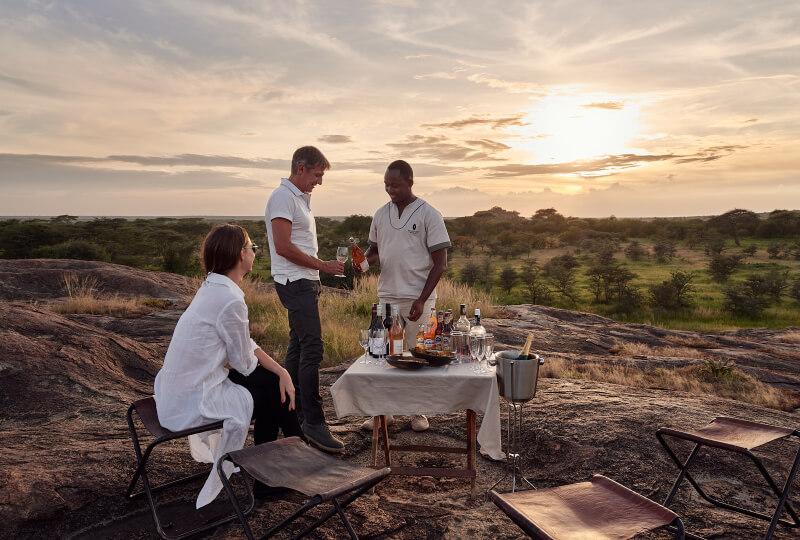
Luxury Masai Mara Safari

Masai Mara Midrange Safari
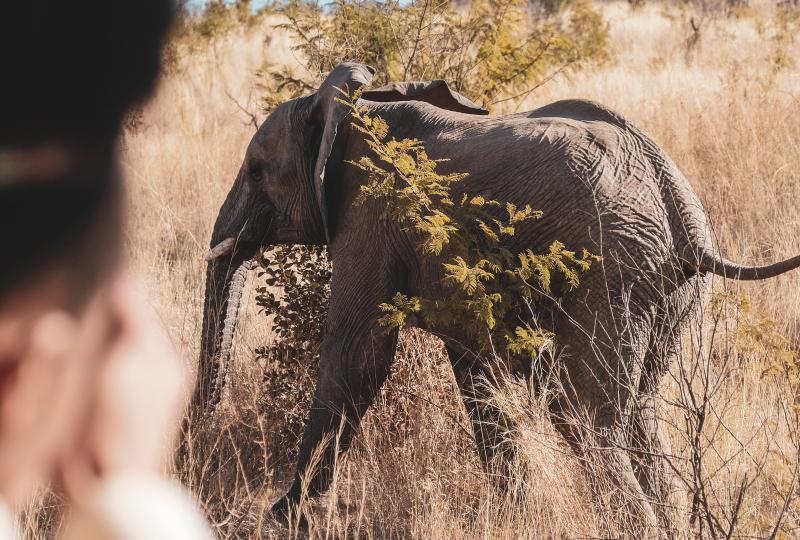
Masai Mara Wildebeest Migration Safari
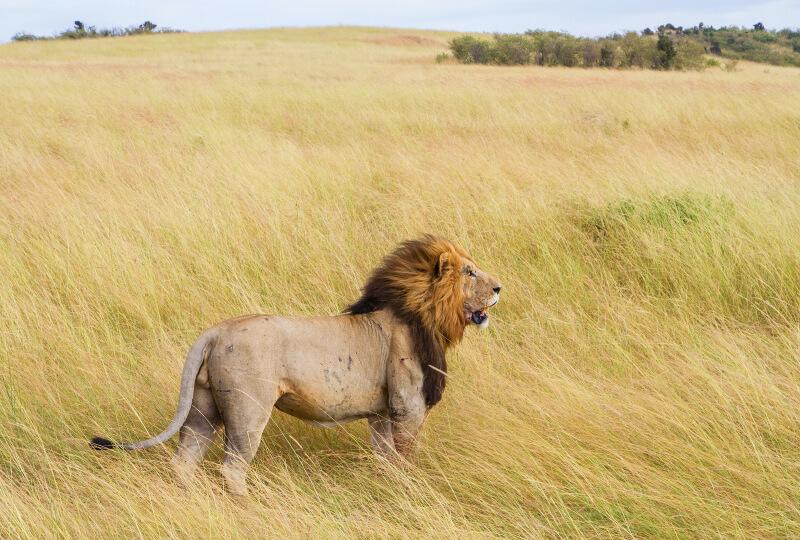
Masai Mara Flight Tour

Masai Mara Wildebeest Migration Fly-In
